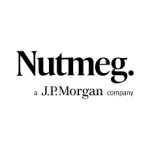Could The FTSE 100 Reach 8000 Points?
According to a number of market analysts, the index of UK’s leading blue chip companies could surge ahead in the short term. With the FTSE 100 Index opening this morning over the 6,700 point mark, what could this mean for our investment decisions? We take a look at what the experts are saying as well as consider some investment options to match your view of what the future could hold.
Citigroup tips FTSE to reach 8,000
The FTSE 100 could be on course to break its previous record high and hit 8,000 points by the end of 2014, according to a bold prediction from market strategists at Citigroup. A recent note by the bank’s analysts, reported in the Telegraph, argues that improving bank balance sheets and stronger corporate earnings, alongside easing fears of a eurozone breakup, will lift investor sentiment towards equities, helping to fuel a strong run in the FTSE 100.
Experts at the bank believe a revival of so-called ‘animal spirits’ within UK company boardrooms will spur a pick-up in merger and acquisition activity and act as further support for share prices helping to push them higher.
Record breaking
The FTSE 100 has recovered strongly since the financial crisis. By Lehmans’ collapse in September 2008 the FTSE 100, which had been above 6,700 as recently as October 2007, was already down at around the 5,000 point mark, spooked by the collapse of Northern Rock, the onset of the credit freeze and growing anxiety about other banks’ strength. Between Lehmans’ collapse and March 2009 the FTSE fell by another 1,500 points to just above 3,500.
The previous record high for the FTSE 100 Index was set at the end of the last trading session of 1999, when it reached 6,930.2 at the peak of the dotcom boom. Last May it came within 90 points of that figure. The benchmark index of Britain’s blue-chip companies would have to climb around 19% from this week’s opening level of 6,721.3 to reach Citi’s 8,000 forecast.
Supporting views
Earlier last month, Old Mutual Global Investors new head of UK equities, Richard Buxton, said the UK market was set for a prolonged period of higher returns and also predicted the FTSE 100 would hit record highs, although at a more modest level of 7,300.
“I have already said I think we are through the worst and I stand by that,” Buxton said. “We are in for a much better period in the UK. In 2014, we anticipate that the trading range may move up to 6,500-7,300 points as companies start to invest and their earnings and profitability improve,” he continued. “In other words, we genuinely believe that we are in what might be termed the ‘foothills’ of a significant equity market growth phase.”
Goldman Sachs agree
Elsewhere, analysts at Goldman Sachs predicted that the benchmark index will climb as high as 7,500 over the coming 12 months on the back of the strengthening UK economy, continued loose monetary policy and stabilisation in the eurozone.
The analysts said receding fears about a crisis in Europe had lifted investor sentiment. They added that companies across the globe are in fine health and have recovered from the Western world’s financial crisis. A pickup in indicators pointing to an improving UK economy will also drive investors to shares, the investment bank said.
Not everyone agrees
However, not all investors are confident the FTSE 100 will reach 8,000 by the end of next year. One of the City’s most respected fund managers, Neil Woodford, who currently manages Invesco Perpetual’s popular Income and High Income funds, has recently predicted that stock markets will suffer a marked slowdown in coming months, following a strong spell of performance.
“Over the past 12 months UK equities have enjoyed a purple patch but the rise in the FTSE 100 Index has not been matched by a commensurate improvement in the economic outlook” he said. He added that the market had overplayed the strength of the UK economy and that stock markets could suffer should investors pull money out of the market as the US starts to rein in its aggressive quantitative easing policy. He said he was also worried that a slowdown in growth from faster growing emerging market economies, such as China, would also have a negative impact on stock markets.
The question still remains
The FTSE has traded above 6,000 points every day since the start of 2013 and opened this week at 6,721. Certainly for investors looking to make new investments or transfer existing investments, having the FTSE at historically high levels raises the question whether now is the right time to invest or not. However, despite these levels, investors would appear reluctant to sell equities for fear they might miss out on any further upside.
You will always find conflicting views on what lies ahead, especially when it comes to the future performance of the stock market since we all understand this is a complete unknown. However, before committing to a course of action the question must be considered – which way might the FTSE go from here? Only then can you consider investments which reflect your view.
Investments to match your view
Depending on which view you take there are a number of investment opportunities to consider, including investment funds and fixed term investments. With the former you generally have the potential to receive a greater share of any stock market growth in return for putting your capital at risk on a daily basis. They are also open ended which means there is no fixed term so you will have to decide when to encash or switch your investment.
Fixed term investments sacrifice some of the potential upside (in the form of dividends and potential increase to capital), for a defined return along with some capital protection against a falling market.
FTSE goes up?
For those who are confident the FTSE could very well steam ahead then investment funds capable of passing on as much of this growth as possible might be the preferred route. Special situation funds often top the UK growth sector and can be categorised as funds seeking investment opportunities in companies that are out of favour, in difficulty or whose future prospects are not considered to be fully valued by the market.
The M&G Recovery fund has returned 11.6% in the 12 months up to the end of September, 22.2% over 3 years and 65.4% over 5 years whilst the Artemis UK Special Situations fund has returned 24.2% over the last year, 41.8% over 3 years and 78.4% over the last 5 years (all performance figures taken as at 30/09/2013).
FTSE remains relatively flat or goes up a little
An alternative to funds is the investment plan which has a fixed investment term and sacrifices some of the potential upside in return for a defined return as well as some capital protection from a falling market. They can also include the ability to mature early or ‘kick out’ from as early as year one onwards, thus providing the opportunity to benefit in the shorter term should the market move as required for the investment to mature early.
If you think the FTSE will remain relatively flat or only go up a little then a Kick Out investment might be the preferred route since they offer the ability to mature early each year provided the FTSE finishes higher than its value at the start of the investment. Investec’s Enhanced Kick-Out Plan can mature from year one onwards and offers 8% for each year invested (not compounded). There are no additional charges associated with this plan. For those prepared to wait for two years before their investment could mature, the UK Kick-Out Plan from Societe Generale offers 9.8% for each year invested, again provided the FTSE finishes higher than its starting value. An arrangement fee applies to this plan.
Both investments could therefore provide competitive returns even if the FTSE has only gone up by as little as a single point. However, if no growth payment is achieved, your capital is at risk if the FTSE falls by more than 50% during the investment term and is below its starting value at the end of the investment, in which case your initial capital will be reduced by 1% for each 1% fall.
Capital protected
If you are positive about the growth prospects of the UK but are not prepared to risk your capital, then there are a range of capital protected deposit plans also available. Investec offer a Kick Out Deposit Plan which will mature early and return 4.25% for each year invested provided the value of the FTSE at the end of each year (from year 2 onwards) is higher than its value at the start of the plan (subject to averaging). If the Index is lower at the end of each year you will only receive a return of your initial deposit.
For those prepared to take a longer term view, the UK Super Tracker Deposit Plan from Societe Generale UK Super Tracker offers a return of 4.3 x any growth in the FTSE over the term of the plan, subject to maximum return of 43% plus a return of your original capital. Therefore, if the FTSE rises by at least 10% over the term, you will achieve this maximum 43% growth. This should therefore appeal to savers concerned about inflation as well as more cautious investors who want to track the FTSE but without risking their capital.
Since these are both deposits they are eligible for FSCS protection and are also available as Cash ISA and for Cash ISA transfers. An arrangement fee applies to both of these plans.
Research all of your options
Whatever your thoughts on the future of the stock market, it is important to make sure you research all of your options. At Fair Investment Company we are constantly reviewing the market and depending on your view on what could happen to the FTSE in the coming years, there should be something to match your views.
The past performance of the FTSE 100 Index is not a guide to its future performance.
Compare kick out investments >>
Compare growth investments >>
Compare capital protected growth investments >>
No news, feature article or comment should be seen as a personal recommendation to invest. The value of investment funds and income from them can fall as well as rise and you may not get back the full amount invested. Different types of investment carry different levels of risk and may not be suitable for all investors. Prior to making any decision to invest, you should ensure that you are familiar with the risks associated with a particular investment. If you are at all unsure of the suitability of a particular investment, both in respect of its objectives and its risk profile, you should seek independent financial advice. Tax treatment depends on your individual circumstances and may change.
The capital protected investments referred to in this article are structured deposit plans that are capital protected. There is a risk that the company backing the plan or any company associated with the plan may be unable to repay your initial investment and any returns stated. In this event you may be entitled to compensation from the Financial Services Compensation Scheme (FSCS), depending on your individual circumstances. In addition, you may not get back the full amount of your initial investment if the plan is not held for the full term.
The kick out and growth investments referred to in this article are structured investment plans are not capital protected and there may be the risk of losing some or all of your initial investment. There is also a risk that the company backing the plan or any company associated with the plan may be unable to repay your initial investment and any returns stated, in which case you may not be entitled to compensation from the Financial Services Compensation Scheme (FSCS). In addition, you may not get back the full amount invested if the plan is not held for the full term. The past performance of the FTSE 100 Index is not a guide to its future performance.
Tags





